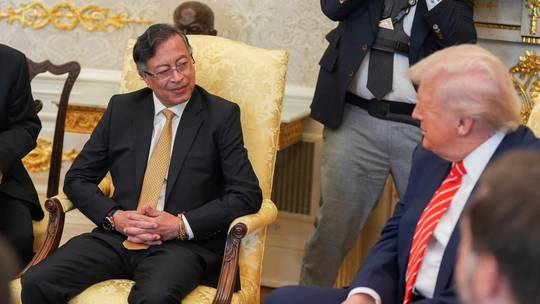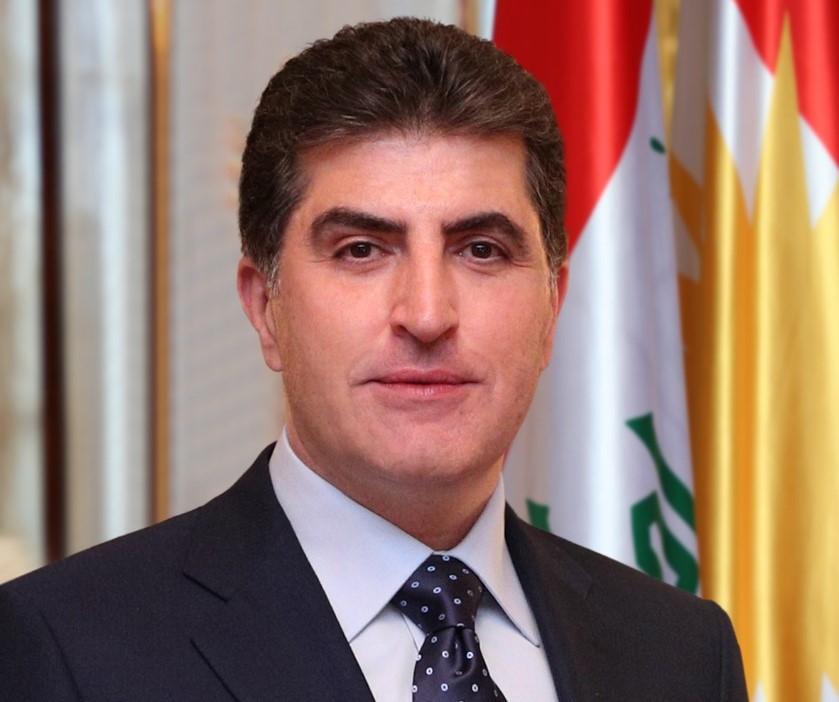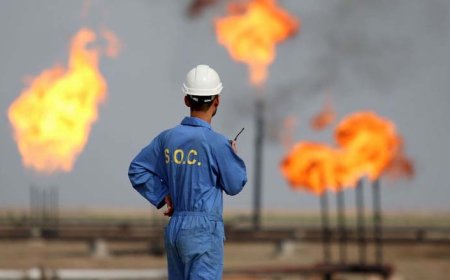Erbil, Baghdad know who is behind drone attacks on Kurdistan Region: Interior minister

ERBIL, Kurdistan Region - Kurdistan Region Interior Minister Rebar Ahmed revealed on Sunday that both Erbil and Baghdad know who is behind the recent drone attacks targeting the Region’s oil infrastructure. He said a joint investigative committee is probing the strikes and called for the perpetrators to be held accountable.
Speaking to reporters, Ahmed stated that “it is clear” for both the Kurdistan Regional Government (KRG) and the Iraqi federal government who the “groups and parties” that have been launching drone attacks at the Kurdistan Region are, and which of them “possess this type of drone and have previously directed them” toward the Region.
“We even know where the drones were manufactured, how they were directed, and what their targets were,” Ahmed said, adding that a joint investigative team has been formed between Erbil and Baghdad to determine exactly which groups the drones belonged to.
He expressed hope that the joint committee would “produce a fair report and announce its results,” emphasizing that “those parties and individuals behind the attacks must be punished” once the investigation is complete.
Ahmed’s comments came a day after Iraq’s National Security Advisor, Qasim al-Araji, led a “technical committee” to the Kurdistan Region on Saturday to “follow up and investigate the recent drone attacks,” he told Rudaw.
“After completing the investigations, all members of the joint committee will present their recommendations” to the Iraqi prime minister, Araji added.
The Kurdistan Region endured nearly 20 drone attacks in July alone. These strikes inflicted significant damage on oil infrastructure, forcing some fields to completely halt operations. The Kurdistan Region has lost nearly 200,000 barrels of oil production as a result, Aziz Ahmad, deputy chief of staff to KRG Prime Minister Masrour Barzani, said in mid-July.
The KRG previously pointed the finger at Iraq’s Popular Mobilization Forces (PMF) - an accusation strongly denied by Baghdad.
Ahmed made his remarks on Sunday during the 11th anniversary commemoration of the Yazidi genocide, held in the Region’s northern Duhok province.
In June 2014, the Islamic State (ISIS) seized large parts of northern and western Iraq. By August, the group had launched a brutal campaign against the Yazidi community in Shingal (Sinjar), killing an estimated 5,000 to 10,000 Yazidi men and elderly women, and abducting between 6,000 and 7,000 women and girls for sexual slavery and human trafficking. Around 400,000 Yazidis fled, with most seeking refuge in the Kurdistan Region.
Addressing the continued displacement of Yazidis from their ancestral homeland in Shingal, Ahmed warned of ongoing “demographic changes,” and urged both the international community and the federal government to “set a boundary” to prevent them. He emphasized the importance of fully implementing the Sinjar Agreement between Erbil and Baghdad.
Signed in October 2020 with the backing of the United Nations Assistance Mission for Iraq (UNAMI), the Sinjar Agreement aims to expel non-state armed groups from Shingal and restore stability and governance to the area.
“The Sinjar agreement should be implemented and the people returned to their homes,” Ahmed noted, citing the federal government’s “negligence" as reason for the delay.
He further added that “several armed groups remain illegally stationed” in Shingal and do not want “the reconstruction and stability” of the Yazidi heartland.
“The federal government must fulfill its responsibilities under the Sinjar Agreement and ensure the removal of these armed groups from the area,” Ahmed concluded.
[Source: Rûdaw English]











/file/attachments/orphans/GettyImages-173171038_666041.jpg)











/file/attachments/orphans/IMG_9103_429753.jpeg)




























